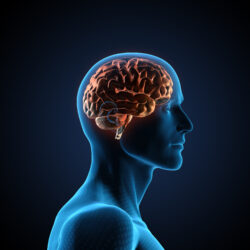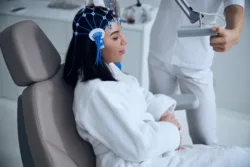Dual Diagnosis: Understanding the Connection Between Mental Health and Substance Use

A person who has been diagnosed with both a mental health condition and a substance use disorder has a dual diagnosis. These two disorders are considered “co-occurring,” meaning they both are present at the same time and influence each other. For example, someone who has an underlying anxiety disorder may use a substance such as alcohol to try to manage the symptoms.
If you or a loved one has been diagnosed with co-occurring disorders, here’s what you need to know about the effects of these disorders and treatment options.
What Do Co-Occurring Disorders Look Like?
Co-occurring disorders can manifest in virtually any combination of mental illness and substance use. However, there are certain combinations that are often seen together. If someone struggles with a condition like depression, they will often take stimulants to counter the effects, while someone suffering from anxiety will use depressants to calm down. Alcohol, hallucinogen, opioid, and prescription medication abuse are all common.
Co-Occurring Disorders Affect Each Other
Substance use and mental health disorders interact and tend to worsen each other. People struggling with mental health symptoms may start or increase substance use to manage their symptoms. Substance use in turn impacts the brain and can exacerbate the mental health condition.
It’s difficult to tell which develops first, the substance use disorder or the mental health disorder. Sometimes, substance use can lead to the development of a mental health condition. Other times, the mental health condition leads to substance abuse, which becomes an addiction.
Both Conditions Must Be Treated
Often, the underlying mental health condition is overlooked and treatment focuses entirely on the substance use disorder. This can lead to relapse as an individual’s untreated mental health symptoms lead them to use substances to cope.
The Substance Abuse and Mental Health Services Administration (SAMHSA) now recommends an integrated treatment model for co-occurring disorders. This model incorporates treatment for both conditions into a patient’s recovery plan. Treatment facilities are often staffed by professionals who are trained in both addiction and mental health.
Treatment Methods for Dual Diagnosis
Treatment methods vary, but some common ones include Cognitive Behavioral Therapy, Dialectical Behavior Therapy, and Motivational Interviewing. Many professionals are also recognizing the mind-body connection and incorporating holistic therapies. Programs may use yoga, art therapy, music therapy, and other alternative methods to reduce stress and improve overall mental health.
Co-Occurring Disorders in Teens
Many teens begin to use drugs or alcohol due to peer pressure or curiosity. However, it’s also possible that an underlying mental health condition is leading to substance use. If your child has started using drugs or alcohol, don’t dismiss it as experimentation. Talk to your doctor and ask for a formal mental health evaluation. It could be that your teen is struggling with an undiagnosed mental illness. Early intervention will improve treatment outcomes and help your teen achieve lasting recovery.
Concerned about Yourself or a Loved One?
High Focus Centers PA has Partial Hospitalization (PHP) and Intensive Outpatient (IOP) programs designed for teens with co-occurring disorders. If you are worried about your teen’s substance use, we encourage you to learn more about our programs to see if they might be right for your child:
If you are more comfortable communicating through email, you can contact us through our website.
In This Blog...
Related Posts

Experiential Therapy: Healing Through Action at High Focus Centers PA

Unlocking Healing Through Creativity: The Power of Expressive Arts Therapy in Outpatient Treatment

Healing the Brain in Addiction Recovery: The Key to Lasting Change

Revolutionizing Mental Health Treatment in Pennsylvania: The Promise of TMS at High Focus Centers




